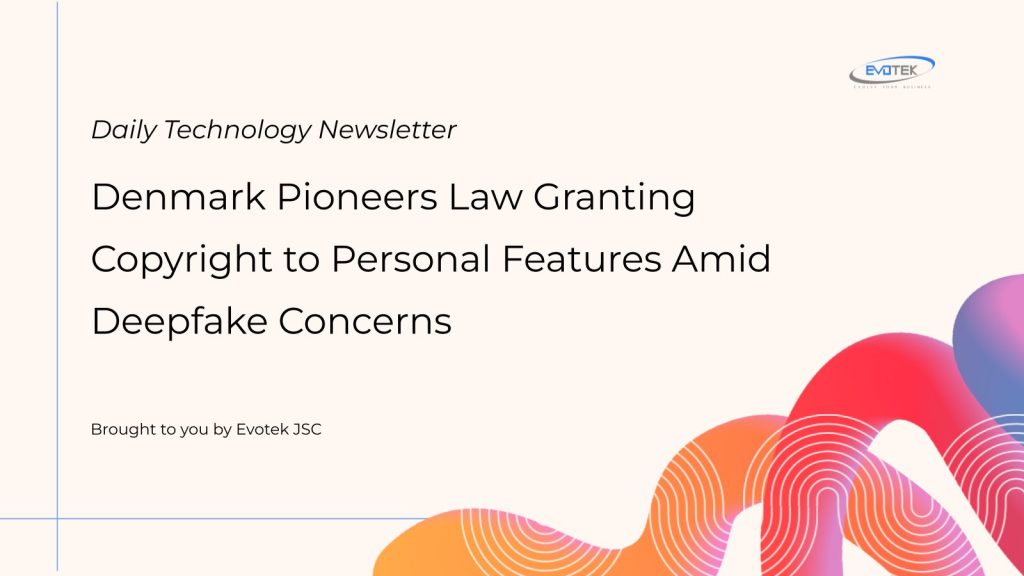Denmark is set to lead the charge against the growing threat of deepfakes by enacting groundbreaking legislation that grants individuals copyright protection over their own body, facial features, and voice. This move comes as AI-generated imitations become increasingly sophisticated, raising concerns about the misuse of personal identities in the digital realm.
The Danish government, securing broad cross-party support, intends to amend existing copyright law. The proposal will undergo consultation before being formally submitted in the autumn. This amendment specifically targets deepfakes, defined as highly realistic digital representations of individuals, including their appearance and voice.
Culture Minister Jakob Engel-Schmidt emphasized the bill’s intent to send a clear message: “Everybody has the right to their own body, their own voice and their own facial features.” He voiced concern over the potential for misuse, stating, “Human beings can be run through the digital copy machine and be misused for all sorts of purposes and I’m not willing to accept that.”
This legislative change will empower individuals in Denmark to demand the removal of deepfake content shared without their consent from online platforms. This protection extends to realistic, digitally generated imitations of an artist’s performance. Violators of the new law could face financial penalties.
The government has clarified that the law will not impede satire or parodies. Engel-Schmidt expressed hope that other European nations will follow Denmark’s example, especially as Denmark assumes the EU presidency. He plans to share the nation’s approach with European counterparts, highlighting the urgency of addressing the rise of deepfakes.
Non-compliant tech platforms could face significant fines, potentially escalating the matter to the European Commission. “That is why I believe the tech platforms will take this very seriously indeed,” Engel-Schmidt stated.
Key Takeaways:
- Landmark Legislation: Denmark is poised to introduce Europe’s first law granting individuals copyright over their own digital likeness.
- Combating Deepfakes: The law aims to protect against unauthorized AI-generated imitations of a person’s appearance and voice.
- Right to Removal: Individuals can demand removal of deepfake content shared without their consent.
- Financial Penalties: Violators of the law could face compensation claims.
- EU Leadership: Denmark intends to promote this approach across Europe during its upcoming EU presidency.
This proactive step by Denmark signals a growing global awareness of the ethical and legal challenges posed by rapidly advancing AI technology. As deepfakes become more pervasive, safeguarding individual identity and controlling the use of personal digital representations is of paramount importance.
Related Terms: Deepfakes, Copyright Law, Artificial Intelligence, Digital Identity, Denmark, European Union

 日本語
日本語 한국어
한국어 Tiếng Việt
Tiếng Việt 简体中文
简体中文